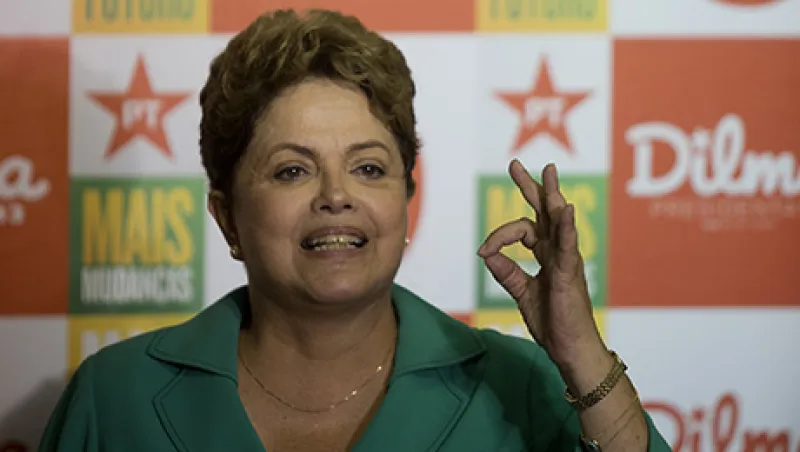
Candidate Dilma Rousseff, Brazil's president, speaks during a news conference at a campaign event in Rio de Janeiro, Brazil, on Tuesday, Sept. 30, 2014. Rousseff has pulled out ahead and would win next month's election against former Environment Minister Marina Silva in an MDA poll. Photographer: Dado Galdieri/Bloomberg *** Local Caption *** Dilma Rousseff
Dado Galdieri/Bloomberg

